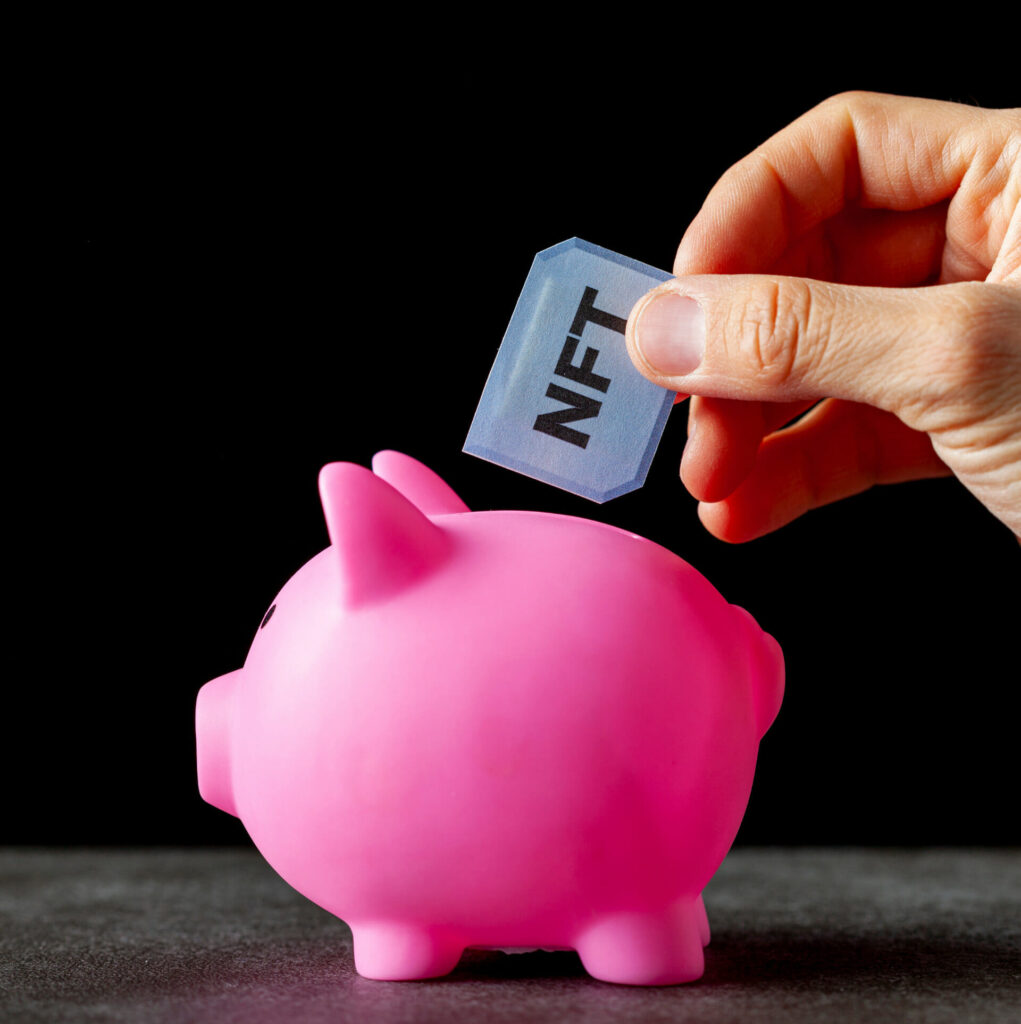It was only a matter of time before someone began monetizing our digital culture. NFTs are currently shaking up art, gaming, and other digital platforms selling items up to millions of dollars. This begs the question, are NFTs a short-lived trend, or are they here to stay?
In 2021 alone, $22 billion was spent on trading NFTs. As the industry expands with new art assets generated and more widely-accessible platforms created, many believe this number will increase. But how can a market exist at all when nothing is physically sold?
What are NFTs, and how are they related to popular cryptocurrencies? We will answer these questions and more as we dive into this relatively new space that boasts dazzling promises of making its investors very rich.
What Is a Non-Fungible Token?
An NFT or non-fungible token is a digital asset of sorts that represents digital items such as art, photographs, and videos. Think of an NFT as a sort of digital title to something. As a digital creator, you can create an NFT that establishes ownership of your digital creation. If you’re a graphic artist, your NFT would reference a particular JPG creation in a similar way to how a deed references a particular piece of real estate.
These digital items can be used within gaming platforms, on social media, or just stored on a computer with the hopes that the digital creation to which the NFT “title” has been created will appreciate in value.
These tokens are one-of-a-kind assets that can be bought and sold like any other piece of property. However, these items have no tangible or physical form, and they exist only as code within the digital space that references the digital item/object owned.
Each NFT is unique and ideally, should be the only “title” to a piece of digital work. For example, in less than ten minutes, William Shatner sold 125,000 non-fungible tokens containing digital photographs of the actor’s memorabilia. One of which was an x-ray of his teeth.
Most non-fungible tokens are part of the Ethereum blockchain. A blockchain is a list of transactions that anyone can verify. Somewhat comparable to a property title search, a blockchain additionally guarantees the fidelity and security of a data record without any third-party verifications so tracing the ownership of an NFT through multiple sales can be accomplished without a visit to the local county records.
Tied to Cryptocurrency
Cryptocurrencies such as Bitcoin, Etherium, and Dogecoin are all fungible. Meaning another identical item can replace them.
If you trade one bitcoin for another, you end up with the same item. However, if you trade one Bored Ape card for another, you would end up with something completely different. Both the art and its value would differ since owning one of these “unique” cards unlocks a membership into an exclusive club.
The pushback for Bored Ape and other “unique” digital assets is the ease with which very similar versions can be created. Alter a few pixels in a JPG and you have a new work of art that could have its own NFT.
How to Create an NFT
To create a token, you must first inscribe some metadata about a piece of art, such as a link to a video or image, onto the blockchain of Ethereum cryptocurrency. This metadata gives the creator a contract after the required “gas fee” is paid. Gas fees are the transaction fees from Ethereum.
Once the gas fee has cleared, Ethereum puts a timestamped permanent metadata record onto the blockchain. You are the owner, and now your new, non-replicable (theoretically), an original digital asset can be sold if desired.
Also, non-fungible tokens have a nifty feature that allows the original creator to continually get paid a percentage every time the token is sold or changes hands.
Christie’s remains the top non-fungible token seller to date. They sold one digital asset called Everydays: The First 5,000 Days for over $69 million.
Duplication Is Okay for Now
The non-replicable piece mentioned above is challenging as well since any image found on the internet can be copied, screenshotted, etc., and saved by anyone else. Perhaps we’ll see businesses cropping up to help identify unauthorized use of digital creations for which an NFT exists.
There are endless copies, prints, photos of the Mona Lisa, only the original holds value. NFTs are similar, and the metadata timestamp acts as an electronic receipt; therefore, it has only one owner.
Since digital images can easily be “right-click copied” again and again, this doesn’t decrease the value of the original image. On the contrary, the more attention an asset gains, the more likely the value will increase. Just like traditional marketing strategies, the hype will increase the demand.
On the flip side, there have been recent lawsuits for copyright infringement involving non-fungible tokens. Quentin Tarantino sold tokens created from Pulp Fiction, and the assets included the original screenplay, “secrets” about the film and his process as a creator. Miramax has since filed a suit against Tarantino, stating they own all the intellectual property for Pulp Fiction.
Wrap Up
NFTs will be around for the foreseeable future, and it is no wonder other companies are jumping on board to create an accessible landscape. Samsung announced earlier this week they plan to release their new smart TV line, and their interface will allow users to purchase non-fungible tokens.
Other brands will follow as new Metaverse platforms align.
But don’t expect it to be a smooth ride. After all, the idea of paying real money for a digital asset that may not actually be that fun to own or unique may cause wild fluctuations.
FINSYNC continues to support your small business with updated accounting and business knowledge to help you grow, scale and succeed.
